In the past few years, the red slice of the color pie has gained a new way of “drawing” cards: the ability to exile cards from your library and subsequently play them. Examples include Act on Impulse or Chandra, Pyromaster‘s +0 ability.
Act on Impulse in General
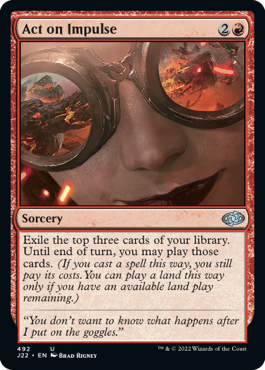
The ability itself seems simple enough. You exile a card or cards and then you’re given the ability to play the card. This is usually within the window of “until end of turn.”. What does it mean to play a card? It means if the card is a land you can play it or if the card is a nonland you can cast it. Since these cards don’t say otherwise, the cards will be exiled face up and all players will be able to see the cards exiled by the effect.
You still need to obey normal timing restrictions. Other effects tell you to cast an exiled card now (cascade, for example), but since Act on Impulse’s effect gives you a window to cast those spells in, you still have to obey the spell’s normal timing restrictions. If the exiled card is a sorcery, you can only cast the card when you could cast a sorcery. You’re not normally going to be able to cast the sorcery during the combat phase.
This might be the most important thing to take away from this article: you still need to pay the costs to cast the spell. Cards do what their Gatherer text says. Nothing more, nothing less. Nothing on Act on Impulse says you get to cast the spell without paying its mana cost, so you don’t cast it for free. If you want to cast the spell, you’ll need to pay the costs to cast the spell. If you can’t, then you can’t cast it and it will remain exiled.
You’re casting the spell from exile, so things that care about casting it from your hand don’t apply. You would lose the game if you cast Phage the Untouchable and you can’t cast a fused split card from exile because fuse only works if the card is being cast from your hand. Cards with rebound won’t exile themselves. Rebound only works if the card is cast from your hand, not if it’s cast from exile. The card is not in your hand, so you can’t discard it for anything. If your opponent Thoughtseizes you, the cards you’ve exiled by the Act on Impulse cannot be chosen since they are not in your hand
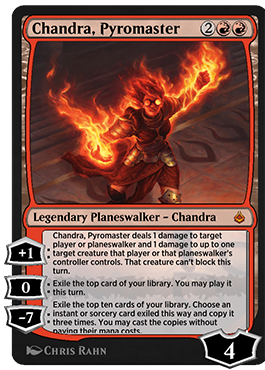
Once you’ve cast the spell, it behaves like any other spell. If it’s a permanent spell, it will go to the battlefield when it resolves. If it’s an instant or sorcery spell, or the spell is countered, it goes to the graveyard. It does not return to exile on its own. If the card does return to exile after you’ve played it, you won’t be able to cast it again. When a card changes zones it’s a new object that has no knowledge of its previous existence in that zone. If it ends up exiled again, the effect that let you cast it before no longer applies to it since it’s a different object and you can’t cast it again.
So what happens if you don’t play the card? The card remains exiled. Nothing says to move it to another zone if you don’t play it, so it remains exiled. You can’t cast it anymore, since the effect that let you cast it from exile ended. It remains in exile for the rest of the game.
What if you’re instructed to exile more cards than the number of cards in your library, such as casting Act on Impulse with only two cards in your library? You do as much as possible and just exile the remaining two cards from your library. You don’t lose the game, since you only lose if you try to draw from an empty library.
Act on Impulse and Lands
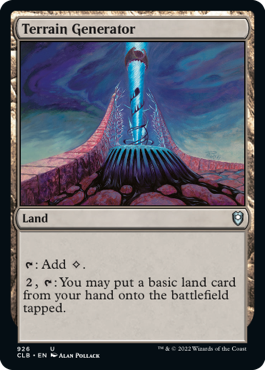
Since the effect uses the word “play” and not “cast”, if the exiled card is a land, you can play it. Note that this does count as a land drop for the turn. If you play a land from exile you won’t be able to play a second one from your hand. If you’ve already used up all of your land drops for the turn you won’t be able to play the land from exile. If you managed to cast Act on Impulse on an opponent’s turn (or, more likely, cast a
Commune with Lava), you cannot play the land on an opponent’s turn. The rules forbid playing lands on opponent’s turns, so you cannot play a land exiled this way on an opponent’s turn.
Act on Impulse and Alternate Costs
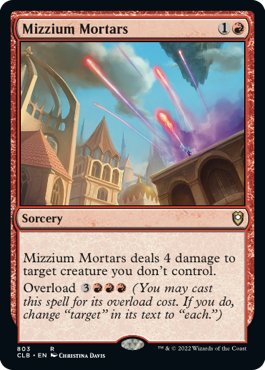
Act on Impulse gives you the ability to play the card. It’s not an alternate cost, so if the spell has an alternate cost, you can cast it via its alternate cost. That means if you exile something like Mizzium Mortars, you can cast it via overload. Or if you exile a creature with bestow, you can cast it for its bestow cost.
Act on Impulse and Additional Costs
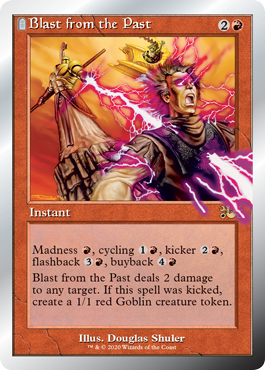
If you’ve been reading along, you’ll know you are indeed casting the spell when you play it from the Impulse’s effect. Since you’re playing it, you can choose to pay additional costs if you want to. If you exile a spell with buyback, you’ll be able to pay the buyback cost and it will return to your hand, not back to exile, when it resolves. If it has kicker or entwine, you can pay that cost to get the bonus or both effects. If a spell has additional costs such as sacrificing a creature, you must pay those additional costs.
Act on Impulse and X Spells
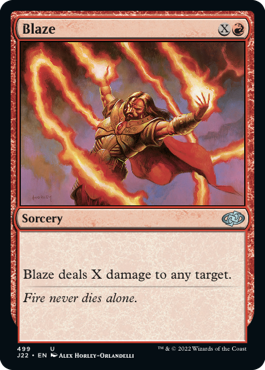
Let’s say you cast Act on Impulse and exile Blaze. What’s the value of X? Remember, since you’re casting the spell, not casting it without paying its mana cost, you don’t default to 0. You can choose a value for X. You’ll be able to cast Blaze for X=5 if you’ve exiled it to Act on Impulse.
Act on Impulse and Morph
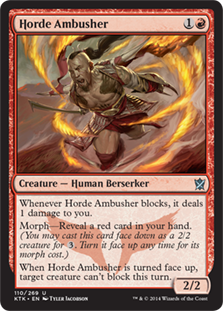
If you managed to exile a card with morph or megamorph, you are allowed to cast it face down, since Act on Impulse’s effect lets you cast the spell. Note that since the card is exiled face up, your opponent will know what the face-down card is. It kind of spoils the surprise, but you still get your face-down creature.
Thanks for reading. If you have any follow-up questions, feel free to reply in the forums.

Written by Nathan Long
Nathan Long
DCI Level 2 Judge
